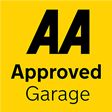20 Common Problems With Electric Cars
The rapid rise of electric cars has promised a cleaner and more sustainable future for transportation. These vehicles boast benefits such as reduced emissions, lower operating costs and smoother driving experiences. However, just like their internal combustion engine counterparts, electric cars are not without their challenges. In this article, we delve into 20 common problems that electric car owners might encounter, shedding light on both the progress made and areas that need further attention.

1: Limited Range Anxiety
One of the most well-known issues with electric cars is range anxiety, the fear of running out of battery power before reaching a charging station. Despite improvements in battery technology, the limited range of some electric cars remains a concern for potential buyers.
2: Charging Infrastructure Challenges
Access to a reliable and convenient charging infrastructure is essential for electric car adoption. Many regions still lack an extensive charging network, making long-distance travel and daily charging more complicated for some users.
3: Charging Speed Variability
While electric cars can charge quickly at high-power charging stations, the charging speed can vary significantly based on factors like battery temperature and state of charge. This variability can affect travel plans and convenience.
4: Battery Degradation
Lithium-ion batteries, commonly used in electric cars, degrade over time, impacting the vehicle’s range and performance. Some users have reported faster-than-expected degradation, prompting concerns about battery replacement costs. Lithium batteries are incredibly bad for the environment.
5: High Initial Cost
The upfront cost of electric cars can be significantly higher than that of traditional gasoline-powered vehicles. Despite potential long-term savings on fuel and maintenance, the initial investment can deter some buyers.
6: Limited Model Options
While the variety of electric car models is growing, the selection is still more limited compared to traditional vehicles. Consumers may have to compromise on vehicle type, size, or features to find an electric car that meets their needs.
7: Long Charging Times

While home charging is convenient, it can still take several hours to fully charge an electric car using standard home charging equipment. Fast-charging stations alleviate this problem but are not as widespread.
8: Cold Weather Impact
Extreme cold weather can negatively affect an electric car’s battery performance, leading to reduced range and slower charging times. This can be particularly challenging for users in colder climates.
9: Hot Weather Challenges
Likewise, high temperatures can impact battery life and performance. Heat management systems are crucial to maintaining battery health in hotter regions.
10: Maintenance Complexity
Electric cars generally have fewer moving parts than traditional vehicles, reducing the need for certain maintenance tasks. However, specialised components like batteries and electric drivetrains require unique servicing skills and infrastructure.
11: Recycling and Disposal of Batteries
As electric car adoption grows, concerns about the recycling and disposal of lithium-ion batteries are becoming more prominent. Developing efficient and sustainable recycling methods is crucial to minimize environmental impact.
12: Inconsistent Charging Standards

While efforts have been made to standardise charging connectors, some regions still have multiple charging standards, making it challenging for users to find compatible charging stations.
13: Lack of Education
Misconceptions about electric cars still exist and potential buyers might lack information about how they work, their benefits and how to properly charge and maintain them.
14: Resale Value Uncertainty
The resale value of electric cars can be uncertain due to concerns about battery degradation and rapidly evolving technology. Clarifying this aspect can provide more confidence to potential buyers.
15: Weight and Performance Trade-offs
Electric car batteries are heavy, affecting the overall weight of the vehicle. This weight can impact handling and performance, especially in comparison to lighter gasoline-powered vehicles.
16: Noise Levels
Electric cars are quieter than their internal combustion engine counterparts, which is usually a positive aspect. However, some users miss the traditional engine noise, which they associate with driving.
17: Limited Availability in Rural Areas

Charging infrastructure and electric car availability can be scarce in rural areas, limiting adoption and usability for those who live outside major urban centers.
18: Insurance Costs
Insurance premiums for electric cars can sometimes be higher due to the perceived higher cost of repairs and battery replacement.
19: Regulatory Hurdles
Depending on the region, electric cars might face specific regulations or incentives that can impact their purchase and ownership experience.
20: Adoption Challenges in Developing Countries
While electric cars offer numerous benefits, their adoption in developing countries can face challenges due to factors like affordability, charging infrastructure and grid limitations.
The growth of the electric car market is undeniably a step in the right direction toward a more sustainable and environmentally friendly transportation future. However, it’s crucial to acknowledge the hurdles that come with any new technology. From range anxiety to charging infrastructure challenges, electric cars face various issues that require attention and solutions.
Manufacturers, policymakers and stakeholders must continue to collaborate to address these problems. Through advancements in battery technology, improvements in charging infrastructure and increased consumer education, the electric car landscape can become more accessible, reliable and appealing to a broader range of consumers. As these challenges are tackled, electric cars have the potential to revolutionise the way we commute and contribute to a cleaner world.

Volksmaster takes pride in being a trusted name. Our commitment to customer satisfaction and our dedication to quality craftsmanship have earned us a solid reputation over the years. We value the trust our customers place in us and strive to exceed their expectations with every job we undertake.
So, if you’re electric car is need of servicing or repair, look no further than Volksmaster. Contact us today to schedule an appointment and let our experts take care of your vehicle. Experience the difference with Volksmaster, where your satisfaction is our top priority and you can have “Confidence in Quality”.
Use our booking form below to contact Volksmaster Oldham 0161 624 5060, Heywood on 01706 622633, Bury 0161 761 3030 or our Oldham Van Centre 0161 628 5270.
We also offer a highly convenient Collect & Return service or a Courtesy Car to ensure your routine is disrupted as little as possible while your vehicle is serviced, repaired or undergoes an MOT.










